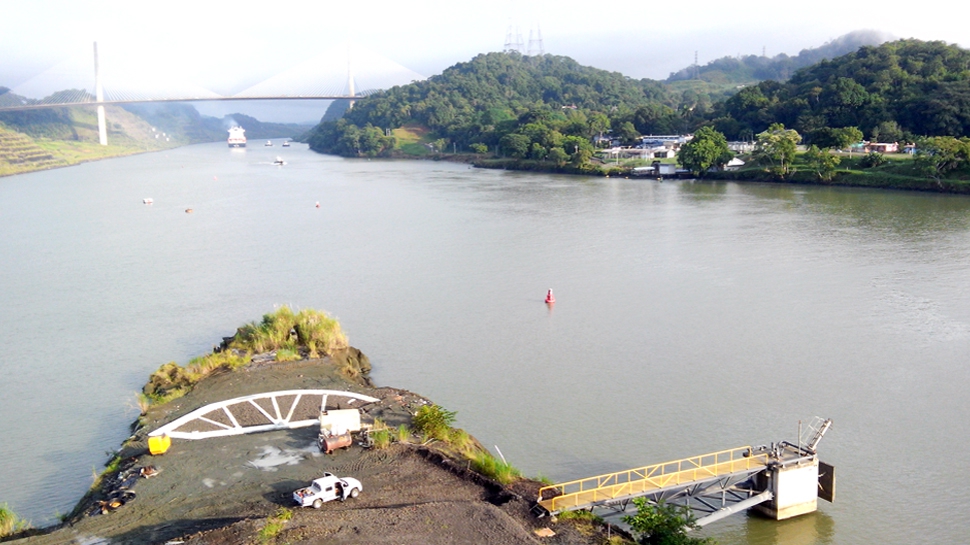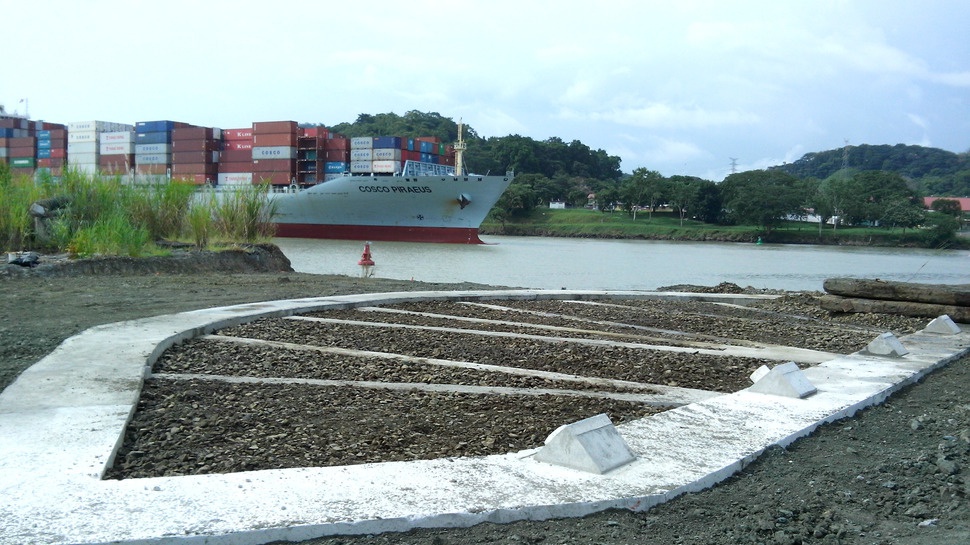
One of the most significant engineering feats of modern times, the Panama Canal, opened to maritime traffic in 1914 to provide a shorter and safer passage between the Atlantic and Pacific oceans. Approximately 13,000 to 14,000 vessels travel the canal each year. In 2016, the largest project at the canal since its construction was completed: a third lane of traffic was added via a new set of locks. Existing navigation channels were widened and several access channels were added. The expansion doubles the waterway’s capacity and allows for much larger vessels.
One access channel connects the new Pacific Lock with the Pedro Miguel Locks toward the north and also with a section of the canal known as Culebra Cut. During construction of the access channel north of the Pedro Miguel Locks, a peninsula known as Punta Norte de Cartagena required stabilization.
Here, the unstable earth was reinforced with cast-iron piles driven 60 ft. to 80 ft. (18.3m to 24.4m) into the ground. A non-shrink grout was required to secure the piles to avoid voids that might absorb water in the nail tubes and cause corrosion of the steel. CTS Cement’s Type K shrinkage-compensating grout was specified to meet these needs. It is engineered to prevent negative volume change and drying shrinkage cracking common when using traditional portland cement grouts.
Type K shrinkage-compensating cement grout is engineered to prevent drying shrinkage cracking. The controlled expansive forces created with Type K grout overcome the anticipated shrinkage of portland cement to produce a durable, high-performance grouting solution that maximizes the protection and long-term performance of the reinforcing steel. Type K Cement was mixed in ready-mix trucks to produce the grout for the 366-ft.-by-50-ft. (111.6m x 15m) project area.
Several pre-stressed reinforced concrete girders were placed in a fan-shaped form to provide further support. The girders were anchored using 46mm Ø, Grade 150, double-corrosion-protected (DCP) DYWIDAG bar anchors.
This successful Panama Canal expansion allows the passage of larger ships carrying more than double the current cargo limits. Lock improvements allow faster passage, and international maritime trade will experience lasting results.
CTS Cement was proud to be a part of this historic project.
For information on how Komponent® can be used to provide a high-performance shrinkage-compensating concreting or grouting solution on your next project, contact a member of the CTS Cement Engineering Team at (800) 929-3030 or info@CTScement.com.
